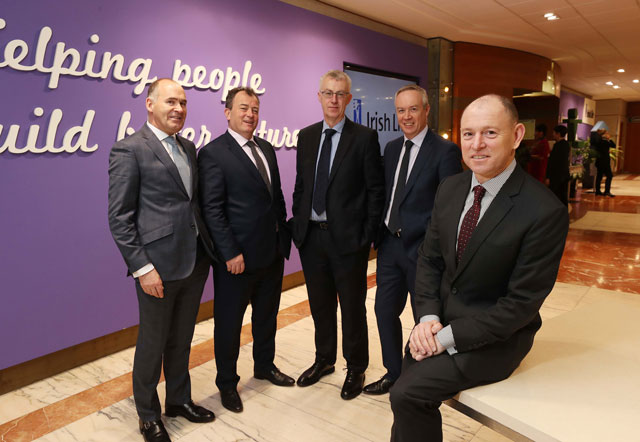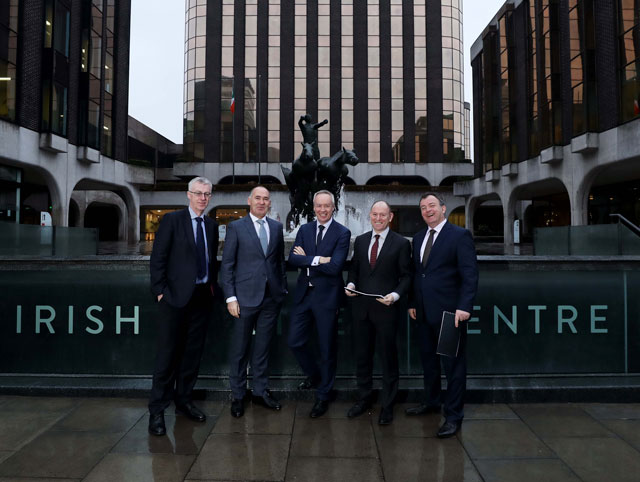David Harney, Chief Executive, Irish Life Group, said that key lessons from international experience indicated that auto-enrolment in pensions could be a major factor in improving Irish pension coverage in the decades ahead. “Our analysis shows that in terms of influencing both employers and employees to be more engaged with pensions, auto-enrolment is the best tool currently available to dramatically raise the levels of pension coverage and adequacy to where they need to be.
“We know from our own research and international experience that there are lots of factors to be considered when looking at auto-enrolment. As Ireland’s leading pension provider, we look forward to playing an active part in any future consultation process to help solve one of the biggest challenges facing Ireland’s ageing population”, he said.
The stark reality of the current state of Irish pension coverage shows that private pension coverage has fallen from 51% in 2009 to 47% in 2017. However, the real pension challenge may be to address pension adequacy and not just coverage. For example, of those with private pensions, current average annual contributions are running at 11.4% compared to the 13% to 14% rate deemed necessary to ensure adequate retirement funding.
New market research findings* showing that 35% of the population expect to rely on the State pension as their main source of retirement income was presented by Denis McLoughlin, Managing Director, Irish Life Retail. “While four in five people agree that as a nation we’re not saving enough for a decent quality of retirement, only one in four adults are planning towards a specific level of retirement income and, worryingly, it’s only one in three for the over 45s. Indeed, more than twice as many over 45s expect to rely on the State pension as their main source of retirement income compared to Millennials.”
Mr McLoughlin added; “Overall, people would like to have some control over their pension in the scheme, with more than half (55%) wanting to be able to choose their pension fund manager, and only 13% wanting to rely on the Government to choose the manager for you. 75% of people also said they’d be more likely to take out a pension or join a scheme if they had “emergency access” to some of their money, with the majority (62%) feeling that you should be able to use some of the value of your pension towards helping with deposit for a mortgage. A total of 84% of respondents also believed that “automatic enrolment” is a better way to get more people saving for retirement.”
Tony Lawless, Managing Director, Irish Life Corporate Business, spoke of the need to influence both employers and employees to help increase pensions coverage.
“We help some of the country’s largest employers put smart initiatives like auto-enrolment in place to help get more people into pensions. But we also need to make pensions easier for people to engage with. We have started on this journey and we are beginning to see some positive results. For example, customers who engage with us online have bigger pension pots saved (more than double the average customer); they save more on a regular basis and as a result they can expect better outcomes in retirement.
“Another way we’re helping people understand how much they need to save is by focussing on the income they can expect in retirement, as opposed to their accumulated fund. Framing pensions positively is also really important; a survey we carried out showed that 40% of people would be more likely to take out a pension if it was just called something else. For us it’s about making positive interventions like these to help people achieve better outcomes in retirement”, he said.
Looking at issues relating to the health of the population, Jim Dowdall, Managing Director, Irish Life Health, said that the short-term focus of the current health model is not sustainable. “A key focus for the Irish health system needs to be on transforming our health model from ‘sickness management’ to one that focuses more on ‘prevention and health and wellbeing’.”
Outlining the opportunity for a more collaborative approach from Government and key stakeholders to work together to improve the health of the nation, Mr. Dowdall warned that Ireland was on course to becoming the ‘most obese’ country in Western Europe by 2025. “While a majority of the population feel they are in good health, unfortunately the reality shows that the health of the population continues to deteriorate with 18% of adults now being obese and we are set to become the most obese country in Europe within the coming decade. There is an urgent need to ensure our younger generation increase their levels of physical activity and adopt healthier behaviours, all of which will improve their health, reduce the level of chronic illness and the demands that this places on our health system.”
Turning to investment trends, Patrick Burke, Managing Director, Irish Life Investment Managers said that 2017 had been a positive year for investors with global equities rising by approximately 20% in local currency terms (approximately 10% in Euro terms due to the strength of the Euro last year), while global bond yields were relatively stable through the year. Irish commercial property investment during 2017 stabilised at €2 billion, with technology companies leading the way in terms of demand.
“For 2018, we believe that global growth is set to remain above 3%, while we expect some inflationary pressure and less accommodative monetary policy. Political tensions, particularly in the US, Europe, the Middle East and Asia as well as the ongoing Brexit negotiations, are likely to mean that market volatility will be more of a feature this year. However, that said, we are still expecting positive mid to high single digit returns in equities and modest upward pressure on fixed income yields.”
*Research undertaken by Coyne Research 2017
**Survey conducted by Irish Life Health 2017
For further information:
Independent.ie
Irish Times.ie
Businessandfinance.com



